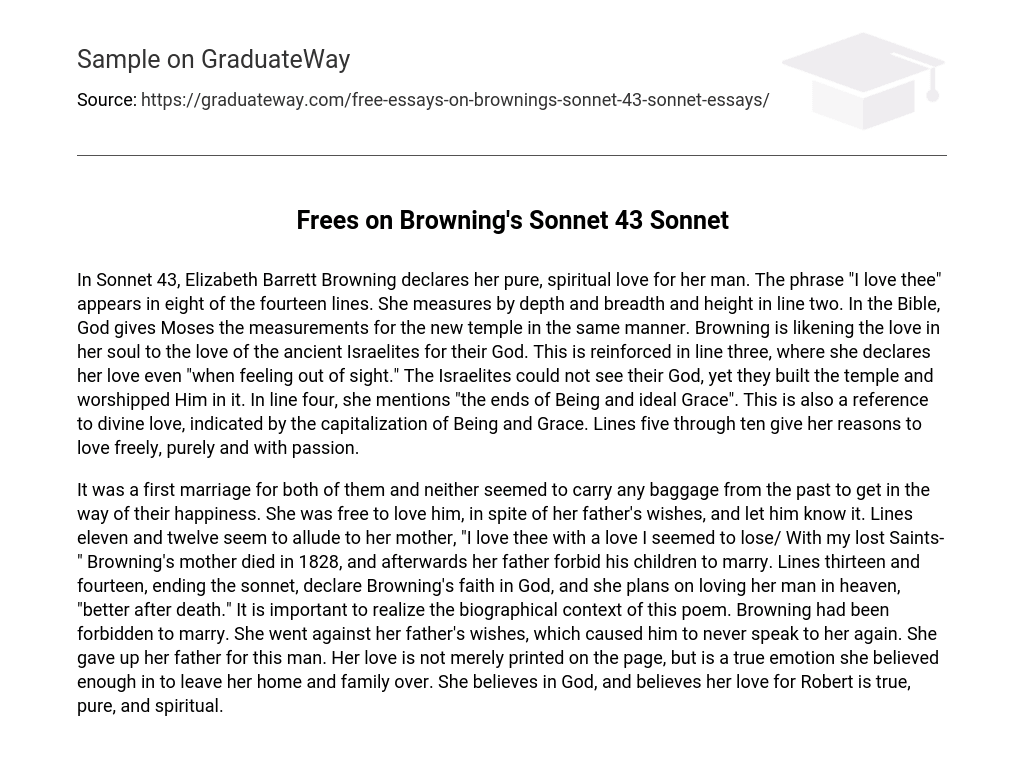Elizabeth Barrett Browning expresses her deep, spiritual love for her partner in Sonnet 43. Throughout the poem, she repeatedly states “I love thee” in eight of the fourteen lines. In the same manner that God gives Moses measurements for the new temple in the Bible, Browning measures her love by depth, breadth, and height. This comparison equates her profound affection with the love the ancient Israelites had for their God. She further reinforces this connection by declaring her love, even when she feels distant or separated from her partner, just as the Israelites couldn’t physically see their God but still worshipped Him in the temple they built. Additionally, Browning mentions “the ends of Being and ideal Grace” in line four, emphasizing divine love through the capitalization of Being and Grace. From lines five to ten, she provides various justifications for loving freely, purely, and passionately.
Both individuals were entering into their first marriage without any previous romantic history that could potentially hinder their happiness. Despite facing objections from her father, she was able to love him wholeheartedly and openly express her emotions. In lines eleven and twelve of the sonnet, there is a mention of her mother, whom Browning appeared to have lost affection for following her passing. This loss may have influenced her father’s decision to prohibit his children from getting married. The sonnet concludes in lines thirteen and fourteen with an emphasis on Browning’s faith in God, as she intends to continue loving her partner even beyond death. It is crucial to consider the biographical context surrounding this poem since Browning had been forbidden from marrying by her father resulting in their estrangement. She made the choice to sacrifice her family for the sake of love, proving that her affection extends beyond mere words but is a genuine emotion that compelled her to leave everything behind. Her belief in God further strengthens her conviction that her love for Robert is true, untainted, and spiritually profound.





